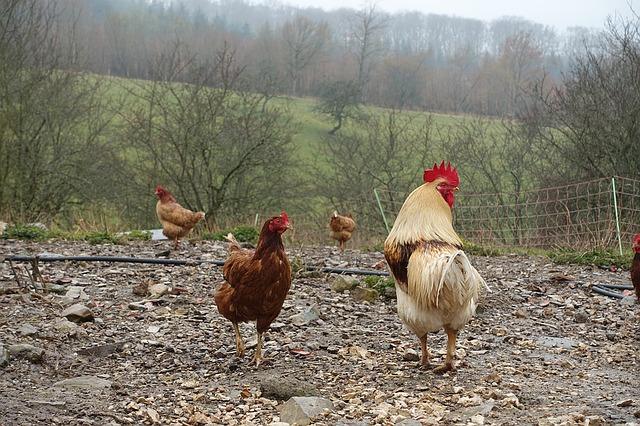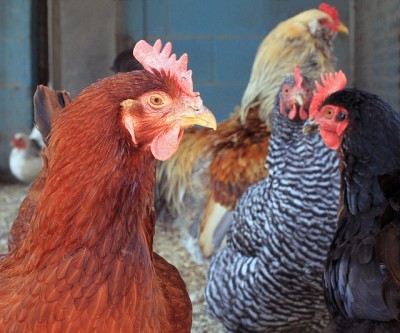A recent egg customer noted the thick stack of bills in the worn red canvas pencil case I use for egg money, and remarked that sales must be going well these days.
I replied that they were indeed doing nicely. The pullets are all up and running, and the older hens have bounced back from their molts and resumed laying again.
“The girls ought to be getting their own wi-fi and spa treatments,” my friend said, laughing.
It is true that my backyard chickens deserve to be treated well, and they are. The great thing about raising laying hens is that a few egg sales can pay for not only all the birds’ needs but can pad the pockets of farmers a bit, too.
Get Diatomaceous Earth Here! It’s The Time-Tested Way To Get Rid Of Bugs
I have raised a variety of other livestock, and each animal was rewarding in its own way. However, none have been so consistently self-supporting as chickens. Following are some ways my backyard birds pay for themselves.
1. Eggs. I have an endless supply of fresh organic free-range eggs, which are said to be lower in cholesterol than factory-farmed eggs. Around my house, there is no shortage of omelets, fried egg sandwiches, frittatas and egg-rich baked goods — made with eggs that go for premium prices if I were to buy them retail.
2. Sales. My surplus eggs sell for a reasonable amount, often the same price as weeks-old factory-farmed eggs in the grocery store. Even though they could easily fetch far more, I choose to keep mine affordable. Even so, my egg income easily covers the cost of everything the birds need.
3. Inexpensive to feed. My hens get top-of-the-line all-organic grain and scratch, and there is still plenty of egg money left over after I buy them food and supplies. In my particular situation, it helps that the birds have access to ample pasture and woods where they can scratch for their food of choice. Grain is always their last choice. But even in wintertime when they eat mostly grain and are not able to forage, I break even on feed costs.
4. Easy to house. My chickens have a cozy coop which is well-insulated against the winter cold, in addition to optional shelters from sun and rain where they can spend time during the day. According to my calculations, they paid for their own Taj Mahal in three or four years of egg-laying.
5. Can be treated humanely with minimal effort and costs. Chickens have few needs — food, clean water, shelter and protection from predation — and thrive well on very little. Homesteaders who are concerned with compassionate care for animals can easily attain such a goal.
6. Help with kitchen and garden cleanup. My chickens love all manner of food nobody else wants to eat. They will gladly snap up vegetable trimmings, past-prime produce, home-canned jellies and chutneys that have been sitting on the larder shelf too long, and stale bread, all of which saves space in the compost bin and saves on chicken feed costs. Chickens are omnivores, too, so they will eat by-products from meat and dairy which would otherwise go into the trash.
7. They love bugs and other pests. Mine eat ticks, flying insects, beetles and other garden menaces. It is good for them, provides them ample entertainment, and reduces my pest population. This results in better vegetable yields and less need for pesticides.
All The Answers To Every Chicken Question And Quandary …
8. Meat and stock. My laying hens stay around the henhouse until they die of natural causes. Even when they stop laying, or when what few eggs they lay have paper-thin shells and break when they land in the nest box, the old girls stay. That is not the way everyone does it, but homesteaders need to do what feels right to them.
However, my homestead does sometimes raise chickens specifically for meat. The result is clean organic meat and stock at a significant savings over the same product purchased elsewhere, and is yet another example of how keeping chickens is an endeavor which pays for itself.
There is not much that can be had for free in today’s world, and there are not many endeavors which truly pay for themselves. In many cases, chickens are one of those rarities. By laying eggs, paying for their own upkeep, keeping other homestead costs down by taking care of scraps and bugs, and providing affordable high-quality meat, keeping chickens is very much a worthwhile activity.
Do you agree that chickens pay for themselves? Share your thoughts in the section below:
Harness The Power Of Nature’s Most Remarkable Healer: Vinegar
 Off The Grid News Better Ideas For Off The Grid Living
Off The Grid News Better Ideas For Off The Grid Living





